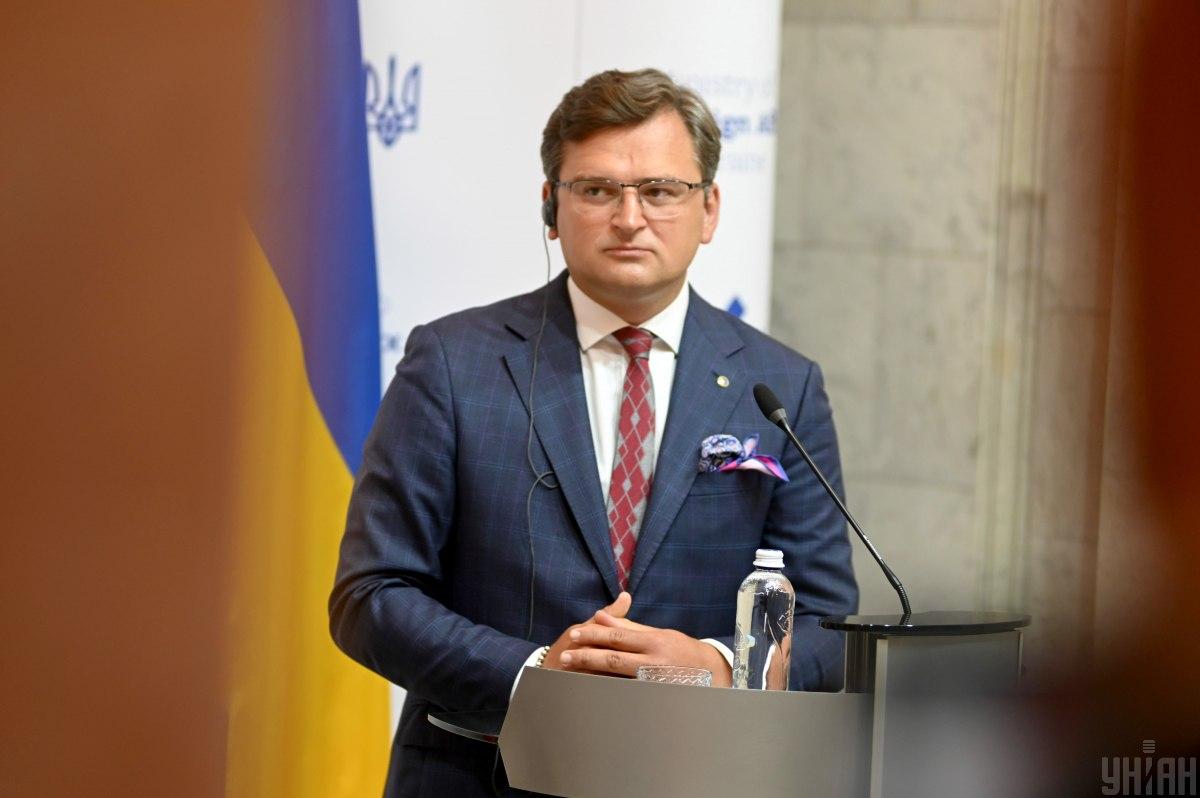
Ukrainian Foreign Minister Dmytro Kuleba has called on Russian President Vladimir Putin to ensure the rights of national minorities and indigenous peoples of the Russian Federation rather than manipulating Ukrainian legislative initiatives.
That's according to Kuleba's commentary available to UNIAN.
The minister noted that the draft law on indigenous peoples tabled in Parliament by President Volodymyr Zelensky is fully consistent with the UN Declaration on the Rights of Indigenous Peoples and the relevant norms of the Constitution.
In this regard, the foreign minister said the bill "has nothing in common with arbitrary interpretations by Vladimir Putin."
"The term 'indigenous peoples' is well-established in international law, in particular the 2007 UN Declaration on the Rights of Indigenous Peoples. The bill proposed by president embodies the leading norms of international law in national legislation. It designates which peoples shall be deemed indigenous: these are unique ethnic communities formed in the territory of Ukraine, which constitute an ethnic minority and have no own state," said Kuleba.
The minister recalled that in Ukraine these are, first of all, Crimean Tatars, Karaims, and Krymchaks.
"The Constitution of Ukraine directly and unequivocally guarantees equality of all citizens in Ukraine, regardless of ethnicity, and separately establishes the duty of the state to protect indigenous peoples and national minorities. Therefore, statements about any oppression as a result of the adoption of the proposed law on indigenous peoples do not correspond to reality," said the minister.
Kuleba also stressed that the rights of the Russian national minority have never been suppressed in Ukraine, while protection and support of the Ukrainian language as state language is a normal process. In addition, protection of the human right to communicate in Ukrainian in Ukraine, by definition, can pose no threat to other languages.
"At the same time, the facts of oppression of national minorities and indigenous peoples in Russia itself are widely known. In particular, the repressive policy toward public organizations of Ukrainians in the Russian Federation continues. In 2010, the Supreme Court of the Russian Federation abolished the Federal National Cultural Autonomy of Ukrainians in Russia. In May 2012, the Supreme Court of the Russian Federation liquidated the Association of Ukrainians of Russia, excluded it from the Unified State Register of Legal Entities. In 2017, the Moscow authorities liquidated the Library of Ukrainian Literature. In July 2019, the General Prosecutor's Office of the Russian Federation recognized Ukrainian World Congress (UWC) as an 'organization non grata' on the territory of the Russian Federation," Kuleba recalled.
Read alsoRussia's State Duma unhappy with Zelensky's bill on indigenous peoples – mediaThe foreign minister said Ukraine strongly protests such repressive actions.
In addition, the minister says Russia continues its policy of repression against the indigenous people of Ukraine, the Crimean Tatars, in the temporarily occupied Crimea. Russia also ignores the demand of the UN International Court of Justice to lift the ban on the Mejlis of the Crimean Tatar people and continues practices of shameful trials against the Crimean Tatar people and in every possible way infringes upon the rights of the Crimean Tatar people, in particular the right to education.
The minister says he calls on the international community to tighten political and diplomatic pressure on Russia in order to force its government to respect fundamental human and minority rights.
"Russian leadership should be concerned with ensuring the rights of national minorities and indigenous peoples of the Russian Federation rather than manipulating Ukrainian legislative initiatives that are fully consistent with international law. Our state conscientiously complies with all its obligations in the field of protecting national minorities and indigenous peoples," Kuleba stressed.
Ukrainian authorities and the Ministry of Foreign Affairs, in particular, interact on an ongoing basis with the UN, OSCE, and the Council of Europe in accordance with Ukraine's international legal obligations, in particular with the UN Declaration on the Rights of Indigenous Peoples, the European Convention on Human Rights, the European Social Charter, and the International Covenant on Civil and Political Rights and the International Covenant on Social, Cultural and Economic Rights.
Read alsoGenocide of Crimean Tatar people: Ukraine honors memory of victimsAs UNIAN reported earlier, on May 18, Zelensky submitted to the Verkhovna Rada urgent draft law "On the indigenous peoples of Ukraine" (No. 5506).
"The document defines the rights of the indigenous peoples of Ukraine and the peculiarities of their implementation in order to facilitate consolidation and development of the Ukrainian nation, as well as the development of the ethnic, cultural, linguistic, and religious identity of such peoples," the President's Office reported.
On June 8, the State Duma of Russia reacted to Zelensky's initiative to adopt a law on the indigenous peoples of Ukraine. In this regard, the State Duma adopted a statement that the Russian Federation condemns the document due to the lack of a mention of Russians.
On June 9, on Russian television, Putin criticized the legislative initiative and compared it with the ideas pursued by Nazi Germany.
"In general, the very division into indigenous, first-class and second-class categories of peoples already quite accurately resembles the theory and practice of Nazi Germany. What about people with mixed blood? Zelensky himself is an ethnic Jew, he may have mixed blood there. What about these people? Will they have, as in Nazi Germany, have their skulls and other body parts measured? Will the way they designated real Arians also be the way they designate real Ukrainians?" said Putin.

